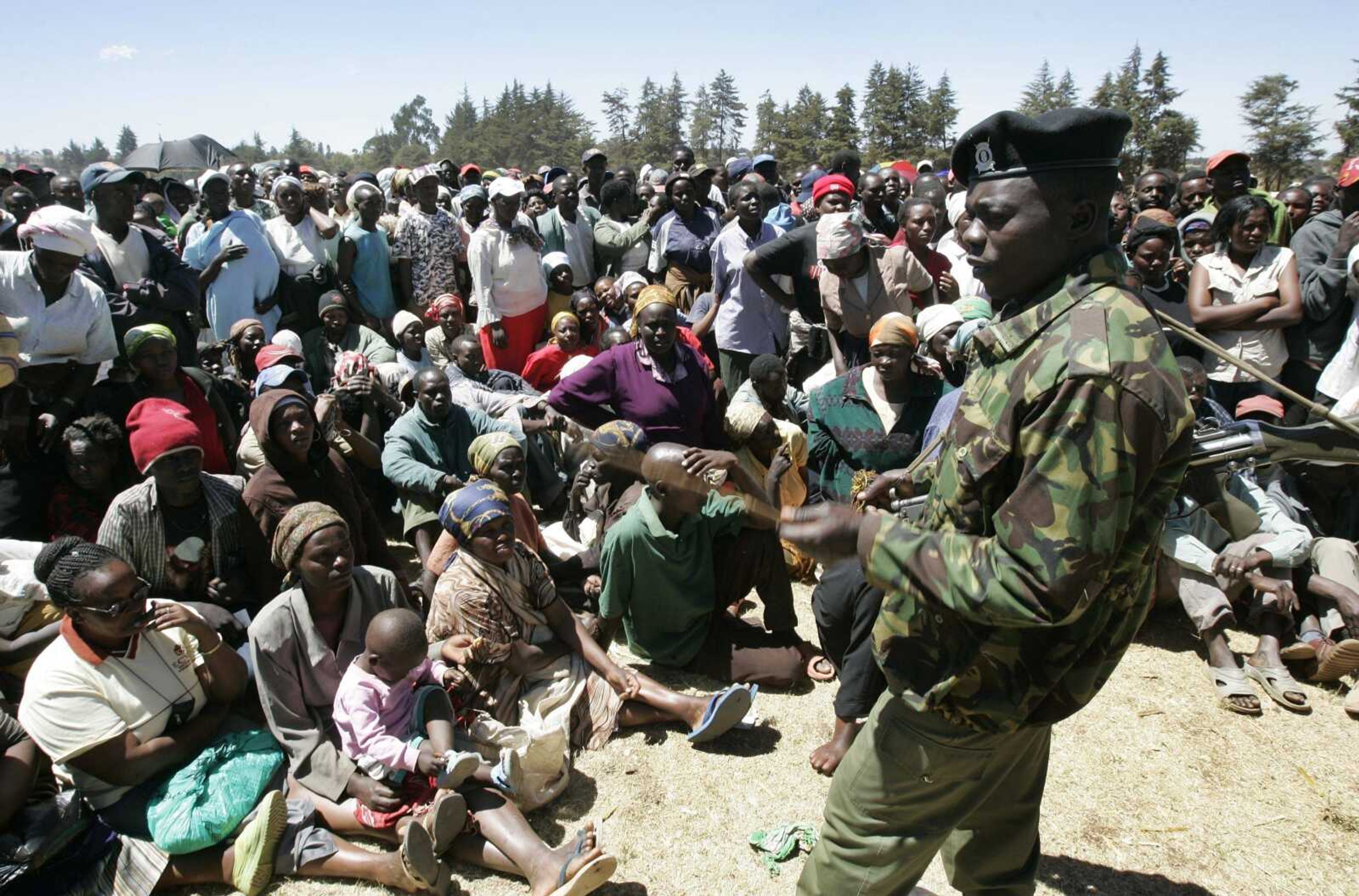Kenyan president invites rival to talks hours after opposition calls off rallies
NAIROBI, Kenya -- Kenya's president on Monday invited his chief rival to his official residence to discuss how to end the country's election standoff, just hours after the opposition called off nationwide rallies amid fears of new bloodshed. The signs of softening by both sides came after three days of talks with the top U.S. ...
NAIROBI, Kenya -- Kenya's president on Monday invited his chief rival to his official residence to discuss how to end the country's election standoff, just hours after the opposition called off nationwide rallies amid fears of new bloodshed.
The signs of softening by both sides came after three days of talks with the top U.S. diplomat for Africa. The African Union president, whose trip to Kenya had been delayed repeatedly as the government rejected outside mediation in the disputed vote, was to begin talks in the capital as early as Wednesday.
The U.S. envoy, Jendayi Frazer, said the vote count was rigged, but declined to blame either President Mwai Kibaki or Raila Odinga, the opposition leader.
"Yes, there was rigging," Frazer said. "I mean there were problems with the vote counting process ... both the parties could have rigged."
Kibaki, who was re-elected after the disputed vote tally, invited Odinga to the State House for a meeting Friday to discuss how to end the political and ethnic turmoil that has already killed some 500 people, according to a statement from the president's press service.
A particularly troubling aspect of the political violence has been its degeneration in some areas into rioting pitting other tribes against Kibaki's Kikuyu, long dominant in Kenya's politics and economy.
Reports of ethnic killings continued to stream in from the countryside, with an official in neighboring Uganda confirming 30 Kenyan refugees were thrown into the border river by attackers, and were presumed drowned.
A statement Monday from the Ministry of Special Programs put the death toll at 486 with some 255,000 people displaced from their homes. The toll, which did not include the drownings, was compiled by a committee of humanitarian services set up by the government which toured areas most affected by riots and protests.
Among those killed was Lucas Sang, an Olympic runner who made the quarter finals of the men's 400-meter race in 1988 and the same year ran in the finals as a member of the 4x400m relay. Sang, a member of the Kalenjin tribe that has clashed with Kikuyu, was found in western Kenya New Year's Eve with a deep gash to the back of his head and his body badly burned, said Moses Tanui, a former world 10,000-meter champion who was a close friend. Sang was in his 50s.
Odinga called off protests after meeting with Frazer and after Kibaki's government said the proposed Tuesday demonstrations were illegal and could provoke violence.
The combination of diplomacy and plain speaking may be particularly effective coming from the United States, one of Kenya's major donors, with overall aid amounting to about a billion dollars annually, according to U.S. Embassy spokesman T.J. Dowling. Remittances and bilateral private trade between the countries accounts for another billion dollars, he said.
Kenya, strategically located in the Horn of Africa and neighboring hotspots Sudan and Somalia, has turned over dozens of suspected terrorists to the United States. The East African nation allows U.S. forces to operate from Kenyan bases and a small team of U.S. military officers train the Kenyan army on counterterrorism and coastal protection.
Odinga told Sky News television that Kibaki's "rigging" himself back into power caused the violence across the country and therefore "Mr. Mwai Kibaki must bear responsibility ... for the deaths we are seeing in our country today."
But Alfred Mutua, a government spokesman, said officials were investigating "premeditated murder" of people warned beforehand that they would pay if they voted for Kibaki.
The sharp rhetoric could make compromise difficult, but Frazer had won an offer from Kibaki to form a unity government over the weekend. Odinga then said he was willing to drop demands that Kibaki resign and was willing to discuss sharing power, but only through a mediator empowered to negotiate an agreement that the international community would guarantee.
The opposition also has proposed an interim government be set up to hold new presidential elections. But Kibaki has said only a court could order fresh elections -- an unlikely event since he has packed the judiciary with his allies.
It would be nearly impossible for Kibaki to govern without opposition support. In parliamentary elections held the same day as the presidential vote, Odinga's party won 95 of 210 legislative seats, and half of Kibaki's Cabinet lost their seats.
Nearly 1,000 Luos were chased Sunday from their homes in one small town, Limuru, 30 miles west of Nairobi, the capital. George Otieno, 30, said about 100 men armed with machetes, hammers and sticks attacked his home and smashed his head with a hammer.
"They said, 'You have to go back to your place,"' meaning the Luo's native lands in western Kenya, said Otieno, whose head was bandaged and shirt marked with dried blood.
About a mile away, more than 500 Kikuyu refugees were at a Red Cross compound, forced from their homes in the remote Western Province that is a Luo stronghold. Thousands of Kikuyus are fleeing western Kenya under armed police escort.
Francis Waweru said he had arrived three days ago with his wife and four children, fleeing a mob of hundreds who torched his shop and home. He showed a leg wound where he said he was shot with a bow and arrow.
"They said, 'No Raila, no peace,"' Waweru said.
Connect with the Southeast Missourian Newsroom:
For corrections to this story or other insights for the editor, click here. To submit a letter to the editor, click here. To learn about the Southeast Missourian’s AI Policy, click here.









